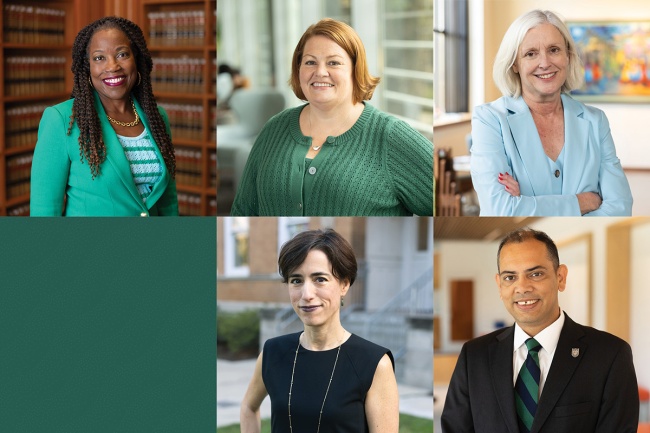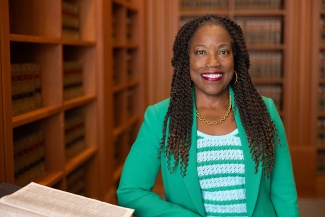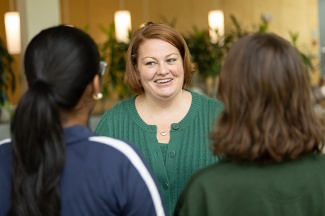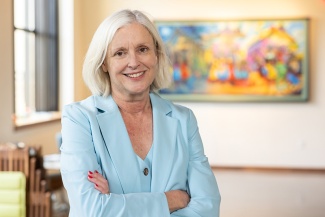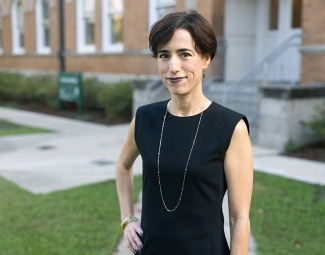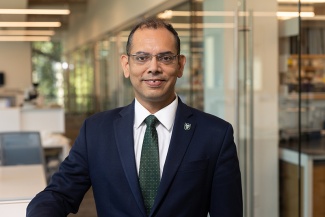Susan Davies
In July, Tulane announced that Susan Davies, associate dean of research at the School of Social Work, would assume the role of interim dean of the school.
Davies, a public health behavioral scientist, joined Tulane in 2020 after a distinguished 30-year career at the University of Alabama at Birmingham (UAB) where she held numerous scientific appointments including at UAB’s Center for AIDS Research, Minority Health Research Center and Center for Clinical and Translational Science. As associate dean at Tulane, she helped to lead the creation of the School of Social Work’s Office of Research.
Now as interim dean, Davies plans to lead the school for the next two years while a search for a permanent dean launches in fall 2025.
“My job is to lay the groundwork for that in terms of rebuilding our community so that we can attract a very strong candidate to lead us to a stronger future.”
Davies plans to increase excellence in the school’s academic programs and will take a “deep dive” into examining the school’s curriculum.
“We acknowledge our deep history in the Gulf South and want to continue improving the unmatched immersed social work education to our students who come to New Orleans to experience our community-imbedded education and field placement experiences that enable them to serve our many community partners under the guidance and supervision of our best clinicians,” she said.
Davies wants to ensure that same excellence and offerings translate to online students, too. The School of Social Work was the first at Tulane to take its master’s program online in 2018. Since the COVID-19 pandemic, more students nationwide are opting to take classes online.
“How can we provide better services to our students … our classroom experiences and our online experiences so that no one feels disconnected?” she said.
Davies also plans to increase on-ground enrollment in the master’s and doctorate programs as well as the school’s Disaster Resilience Leadership Academy and the new social work undergraduate minor.
“Social work has so many applications, whether you plan to go to medical school or become an entrepreneur, our social work minor teaches students valuable life skills that will serve them well in their personal and professional lives, whatever path they take after graduating Tulane.”
Increasing community engagement, specifically through the school’s Center for Lifelong Learning and the Porter Cason Institute, is another priority for Davies. The center offers continuing education and trainings to professionals in Louisiana and the Gulf South region. The institute also offers advanced clinical training and community projects to School of Social Work students, faculty, field supervisors and practitioners as well as professionals regionally and nationally. The institute aims to enhance the teaching and learning of mental health and clinical interventions to advance family therapy practice.
Continuing to increase the school’s research is on her to-do list, too. She already has efforts in the works for larger mentoring opportunities for faculty, especially junior faculty, to support them in their new and continued research.
“Our faculty have great expertise — in trauma-informed care, substance misuse, HIV, mental health issues and disaster resilience. We’re in a unique position to make significant contributions to both the scientific and practice communities in all of these areas.”
Although Davies is not new to Tulane, she is reminded of that same excitement that drew her in: “Tulane has so much to offer, and New Orleans has so much to offer. I continue to be excited and see more that I can do and that we can do together.”


